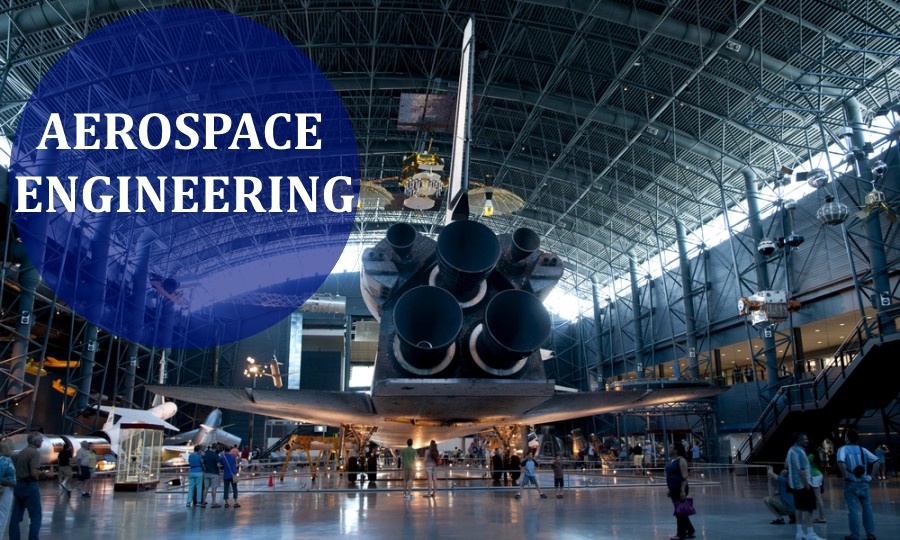
Aerospace engineering is one of the recent branches of engineering that began in the 19th century, with the first experiments based on powered flight. It deals with the designing and building powered lighter-than-air crafts, gliders, fixed-wing airplanes and jets, autogyros and helicopters. Working in this sector will allow students to focus on the design and development of space crafts! Continue reading to get a detailed description of this unique field of engineering.
What is aerospace engineering?
Aerospace engineering (or aeronautical engineering) is the field of engineering that involves designing, developing, constructing, testing and operating vehicles operating in the Earth’s atmosphere or in outer space. The aerospace engineering industry is focused on designing military vehicles, such as fighter aircraft, missiles, space crafts and general aviation instruments. It typically deals with the research, development, testing and procurement of military vehicles. Government agencies provide industrial contracts to the aerospace department, ranging from engineering problem studies to designing and fabricating of aviation hardware.
Career prospects after completing a B. Tech aerospace engineering degree
The field of aerospace engineering is armed with an extensive background suitable for occupying a wide range of employment in various aviation disciplines. This may also include transportation, construction, communication, as well as energy-related issues and non-aerospace applications. Let us look at some of the job roles that you can take on after pursuing a B. Tech aerospace engineering degree.
- Aircraft Manufacturing Engineer – Aircraft manufacturing engineers work to design, construct, develop, test, revamp and inspect issues related to the manufacturing of an aircraft or its components. They are responsible for designing and constructing the aircraft, as well as controlling, maintaining and repairing the specific parts of the aircraft or the entire aircraft. These professionals possess depth knowledge, expertise and extensive research to develop new mechanisms that are required to design, construct and maintain a plane for a safe and smooth flight.
- Flight Simulation Engineer − Flight simulation engineers are hired by government agencies or airlines, where they work to design and create flight simulators. These professionals typically work along with a team and are occasionally required to liaise with designers and computer programmers. They specialise in creating interactive programs that mirror the experience of flying as closely as possible.
- Aircraft Maintenance Engineer – Aircraft maintenance engineers make repairs, troubleshoot problems, conduct inspections and make upgrades to aircraft to ensure every aircraft operates properly and safely. They typically work with specialized aviation and power tools, computers, diagnostic equipment and x-ray machines. Besides keeping aircrafts in working order through maintenance, repairs and inspections, their daily duties may include keeping records of aircraft, performing scheduled maintenance and making emergency repairs.
Opting for a B. Tech aerospace engineering programme can allow you to acquire expertise in a wide variety of technical issues, such as design analysis and manufacturing of airplanes, rockets, missiles, space launch vehicles, UAVs and many more. Apply now to transform yourself into an aviation industry-ready professional.
